Know Your Options and Pick the Best Fertilizer for You
As the spring months slip by, so do our chances of preparing our landscapes for summer gatherings and backyard hangouts. Creating a beautiful backyard landscape is a lot more involved than just lawn mowing and sprinkling a few seeds.
For your landscape to reach its full potential, you need a nourished foundation that can foster healthy, lush plant life. The best way to ensure your soil produces green grass and pretty flowers is through properly fertilized soil.
Here’s what you need to know about making the right fertilizer choice for your property.
What are the Different Types of Fertilizer?
Inorganic vs Organic
When it comes to nourishing your soil, one of the biggest decisions you will have to make is the choice between inorganic and organic materials for your fertilizer.
Choosing an inorganic fertilizer does not necessarily mean that you end up pumping your land with dangerous chemicals.
While inorganic fertilizers are processed to some degree, many of them contain the naturally occurring chemicals that are already at work in the soil on your property, with a little added help for your plants.
When you look into the components of inorganic fertilizers, you will probably hear terms like carbon, nitrogen, and ammonium. While these may sound like the materials of a mad scientist, they are actually the very components at work to help your plants grow.
Take this explanation from SFGate, “Balanced inorganic fertilizers, high in all three macronutrients, commonly include products like ammonium nitrate, ammonium sulfate, potassium chloride (potash), triple superphosphate, and magnesium sulfate (Epsom salts) . . . inorganic fertilizers provide this nutrition in plant-ready form immediately.”
Inorganic fertilizers may be a better choice if you want to add nutrients to your soil at a low cost and quickly improve the overall quality of your foundation.
Organic Fertilizer
As is the case for many products on the market, fertilizer made of organic components is attractive for a number of reasons.
While inorganic fertilizers provide nutrients to soil rapidly, organic fertilizers transmit a bit more slowly and their actual nutritional contents cannot be appraised without laboratory testing. That being said, slow and steady does result in a greater improvement in the long term.
Choosing an organic fertilizer does result in a greater upfront cost, but the longstanding improvements to soil over time may result in a foundation that stays healthier for season after season, making it a cost-effective choice in the long run.
When it comes to choosing the right type of fertilizer, there are a number of factors to consider. Some individuals want to make quick improvements to their landscape in order to expedite the beautification of their property as much as possible. In this case, inorganic fertilizer is your best option.
Other property owners may want landscape improvement for the long haul and opt for the environmentally-friendly organic options.
At the same time, some people just don’t want the mess and odor of organic fertilizers made from manure or compost, so an inorganic fertilizer eliminates some hassle.
The most important thing when it comes to choosing a fertilizer is that you choose the product that perfectly coordinates with your unique property, your budget, and the aspirations for your landscape.
A great landscape starts with a nourished foundation. Don’t leave the health of your landscape up to chance, leave it up to the experienced professionals at The Parke Company to help you choose the perfect fertilizer.
From lawn problems to tree removal, the landscaping professionals at The Parke Company have the experience and the skills to handle lawn problems and answer your landscaping services questions.
Let us meet the unique needs of your property and bring your design dreams to life.
Give us a call (615-350-6033) or contact us online today to see how The Parke Company difference can work for you.
